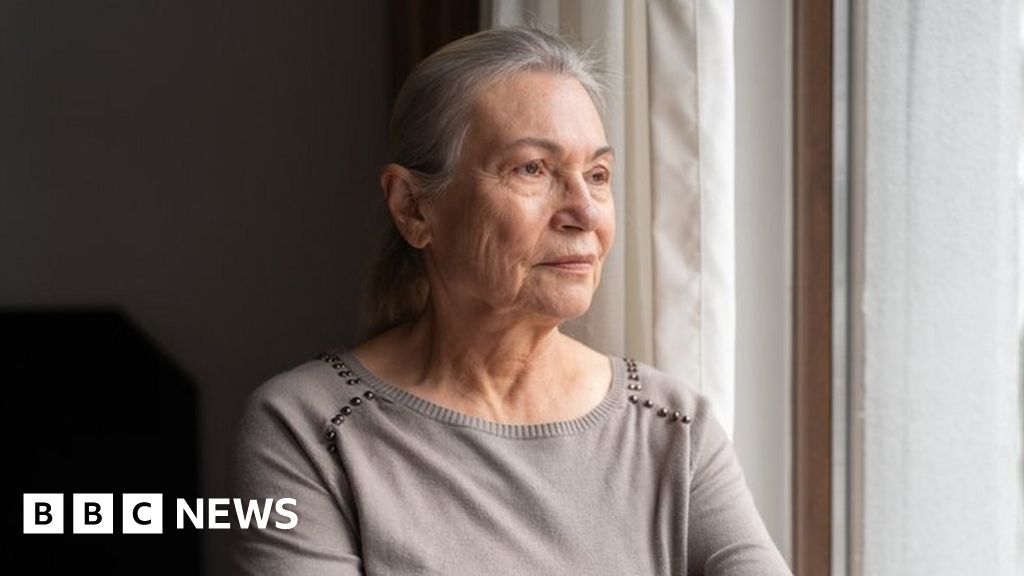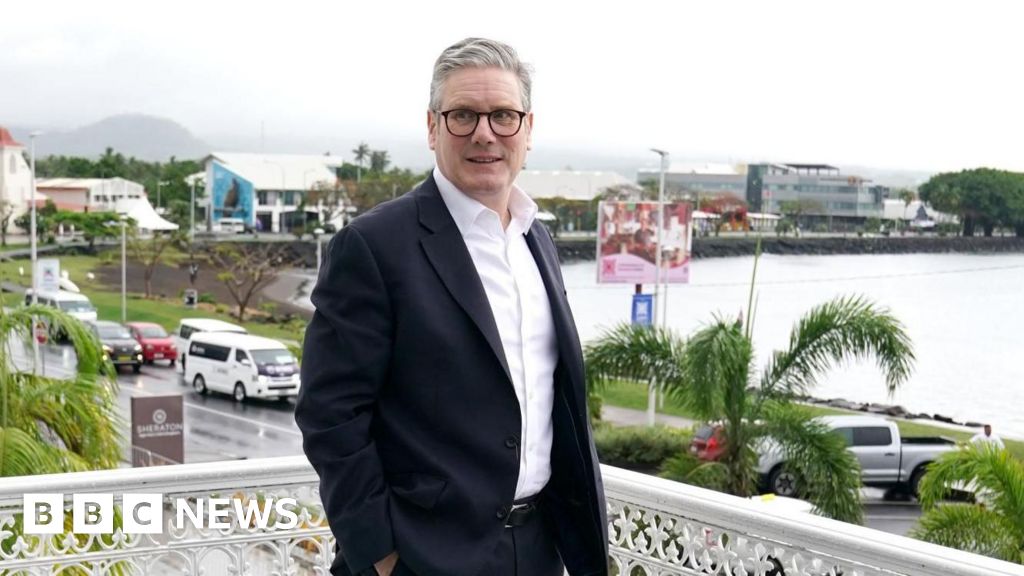Politics
Force companies to report their food waste, say leading UK retailers | Food waste
Food companies should have to report how much they throw away as a first step towards reducing the vast amounts of edible food squandered in the UK, a group of prominent businesses have said.
About a third of the food produced globally every year is binned, much of it before it reaches the consumer at a cost of almost £22bn annually to the UK economy.
There is also a heavy environmental toll: food waste globally contributes up to a 10th of greenhouse gases.
More than 30 food businesses, including supermarkets and food producers, have written to the environment secretary, Steve Reed, calling for mandatory reporting of wasted food.
They argue that forcing companies to confront the reality of how much they produce and what happens to it will spur better behaviour, including more efficient processes and increased efforts to reuse surpluses.
Reed has spoken repeatedly of his desire to see a “circular economy”, with less waste of all kinds. The government has a target of halving food waste by 2030, but has yet to set out new measures to meet it. The Observer understands that ministers are willing to consider placing a duty on companies to report their waste.
Jamie Crummie, co-founder of Too Good to Go, an online service that lets restaurants and food retailers advertise last-minute surplus food at a discount to consumers, organised the letter to Reed, along with the British Retail Consortium (BRC).
He said compulsory reporting would be a vital first step and would allow everyone – consumers as well as the government and other businesses – to judge how careful, or profligate, suppliers were in comparison with their peers.
“Food waste is one of the largest contributors to climate change,” he said. “In the UK alone, we throw away 10.7m tonnes of food annually. We are delighted to see the environment secretary set out the creation of a zero-waste economy as a priority. In line with this ambition, and with the support of more than 30 businesses from across the food sector, we hope to see swift implementation of mandatory food waste reporting to ensure transparency and accountability when it comes to our food.”
The letter is signed by several of the UK’s biggest supermarkets, including Tesco, Waitrose, Aldi, Sainsbury’s and Marks & Spencer, as well as the BRC, which represents shops. Food producers including Nestlé, Princes, Innocent Drinks, Yoplait and Yo! Sushi are also on the list.
Mandatory reporting, as envisaged by the signatories, would not be imposed on farmers, but every company above a certain size in the food chain beyond the farm gate.
after newsletter promotion
Some food producers are already using new techniques such as AI to make their supply chains more efficient and cut waste, as well as more traditional methods such as donating still-edible surpluses to food banks.
The Department for Environment, Food and Rural Affairs said: “The amount of food we waste is a stain on our country. We are working with business to drive down food waste and make sure food is put on the plates of those in greatest need. This includes supporting surplus food to be redistributed to charities and others that can use it and on programmes to help citizens reduce their food waste.”
The letter’s signatories are also working with MPs to raise awareness of the problem. Wera Hobhouse, the Liberal Democrat MP for Bath, who is also vice-chair of the all-party parliamentary group on the environment, said: “The number of meals that are simply thrown away in the UK each week is deeply concerning. To reduce food waste across the board, we first need to move beyond the throwaway culture we have become far too used to.
“That’s why we are pushing to work with businesses by putting in place the right incentives to cut back on waste and overconsumption.”
Politics
What do assisted dying, assisted suicide and euthanasia mean and what is the law?

The Dignity in Dying campaign group says more than 200 million people around the world have legal access to some form of assisted dying, external.
Switzerland has allowed assisted suicide since 1942 and its Dignitas facility began operating in 1998.
The organisation accepts foreign patients as well as Swiss nationals, and said it had 1,900 UK members in 2023, a 24% rise on the previous year.
Between 1998 and 2023 Dignitas helped 571 Britons to die, external.
Assisted suicide is also legal in Austria.
In the US,11 states – Oregon, California, New Mexico, Colorado, Washington, Hawaii, New Jersey, Vermont, Maine and Washington DC – allow “physician-assisted dying”.
It permits doctors to prescribe lethal drugs for self-administration.
Voluntary euthanasia is legal in Canada where it is called medical assistance in dying. It can be provided by a doctor or nurse practitioner, either in person or through the prescription of drugs for self-administration.
It is also legal in Spain and Colombia, both of which also permit assisted suicide.
Assisted dying is legal in some parts of Australia but the law differs across states. It is not permitted in either the Northern or Australian Capital territories.
New Zealand’s End of Life Choice Act legalises assisted dying and allows adults in their final months of life to request assistance from a medical professional.
Three countries have laws that allow people who are not terminally ill to receive assistance to die: The Netherlands, Belgium and Luxembourg.
Politics
Football Governance Bill: Government to introduce ‘strengthened’ legislation

The bill, tabled initially in March, failed to pass through Parliament before the general election was called in May.
But in “major changes” to the proposed legislation, the Labour government is set to strengthen the regulator’s remit, which will oversee clubs in the top five tiers of the game.
Culture secretary Lisa Nandy said: “For too long, financial instability has meant loyal fans and whole communities have risked losing their cherished clubs as a result of mismanagement and reckless spending.
“This bill seeks to properly redress the balance, putting fans back at the heart of the game, taking on rogue owners and crucially helping to put clubs up and down the country on a sound financial footing.”
In a statement, the Premier League said it “recognises that key elements of the bill can help make the English game stronger”.
It added: “We remain concerned about the regulatory framework. Specifically, we believe rigid banking-style regulation, and the regulator’s unprecedented and untested powers to intervene in the distribution of the Premier League’s revenues, could have a negative impact on the league’s continued competitiveness, clubs’ investment in world-class talent and, above all, the aspiration that drives our global appeal and growth.
“With our clubs, we will continue to work with government and parliamentarians to consider appropriate checks and balances in the legislation to protect the hard-won position of English football, which is globally admired, a vital source of soft power and a driver of economic growth all over the country.”
Politics
Commonwealth heads of government to defy UK on reparatory justice

Commonwealth heads of government are preparing to defy the United Kingdom and agree plans to examine reparatory justice for the transatlantic slave trade, the BBC has learned.
Downing Street insists the issue is not on the agenda for the summit of 56 Commonwealth countries, which begins in the Pacific island nation of Samoa on Friday.
But diplomatic sources said officials were negotiating an agreement to conduct further research and begin a “meaningful conversation” about an issue which could potentially leave the UK owing billions of pounds in reparations.
The current text of the draft summit communique – made known to the BBC – says: “Heads, noting calls for discussions on reparatory justice with regard to the transatlantic trade in enslaved Africans and chattel enslavement… agreed that the time has come for a meaningful, truthful and respectful conversation towards forging a common future based on equity.”
It says the heads of government would play “an active role in bringing about such inclusive conversations addressing these harms” and that they agreed “to prioritise and facilitate further and additional research on the transatlantic trade in enslaved Africans and chattel slavery that encourages and supports the conversations and informs a way forward”.
The text – which could still change once Commonwealth leaders arrive – has been hammered out by diplomats ahead of the summit. British officials succeeded in blocking a plan for an entirely separate declaration on the subject.
The UK did not want any language in the communique about reparatory justice, but at the moment it is having to accept it will include three full paragraphs setting out the Commonwealth’s detailed position.
Reparatory justice for slavery can come in many forms, including financial reparations, debt relief, an official apology, educational programmes, building museums, economic support, and public health assistance.
Officials from Caricom, the body that represents Caribbean countries, have sought to broaden the issue so that it encompasses not just the slave trade across the Atlantic but also the Pacific.
The draft communique says a majority of member states “share common historical experiences in relation to this abhorrent trade, chattel enslavement, the debilitation and dispossession of indigenous people”.
It also refers directly to practices known as “blackbirding”, where Pacific islanders were tricked or kidnapped into slave or cheap labour in colonies throughout the region.
Diplomats said the expectation now was that reparatory justice would be a central focus of the agenda for the next Commonwealth summit in two years’ time in the Caribbean, possibly Antigua and Barbuda.
In the run up to this year’s summit, there have been growing calls from Commonwealth leaders for the UK to apologise and make reparations worth trillions of pounds for the country’s historic role in the slave trade.
A report published last year by the University of West Indies – backed by Patrick Robinson, a judge who sits on the International Court of Justice – concluded the UK owed more than £18tn in reparations for its role in slavery in 14 Caribbean countries.
Last weekend the prime minister of the Bahamas, Philip Davis, used a visit by Foreign Office minister Baroness Chapman to tell her the fight for reparations was far from over.
According to the Bahamas government website, Mr Davis said: “The call for reparations is not simply about financial compensation. It is not about financial compensation.
“It is about recognising the enduring impact of centuries of exploitation and ensuring that the legacy of slavery is addressed with honesty and integrity.
“As Caribbean nations, we stand united in our demand for justice for generations who came before us and those of us who are still living with that brutal history.”
A UK government spokesperson said they would not comment on the leak to the BBC, but added: “Reparations are not on the agenda for the Commonwealth Heads of Government meeting. The government’s position has not changed – we do not pay reparations.
“We are focused on using the summit at [the Commonwealth Heads of Government Meeting] to discuss the shared opportunities which we can unlock across the Commonwealth – including securing more economic growth.”
It is understood the Downing Street position – that reparatory justice is not on the agenda – while technically correct, has angered some Caribbean ministers when it was obvious that the issue would be discussed at the summit.
It is one of many issues that are not technically on the agenda but will still be addressed and discussed.
Sir Keir Starmer landed in Samoa late on Wednesday UK time, becoming the first sitting prime minister to visit a Pacific island nation.
Speaking to reporters en route, he said he wanted to discuss current challenges with Commonwealth leaders, especially climate change, rather than issues of the past.
“What they’re most interested in is, can we help them working with, for example, international financial institutions on the sorts of packages they need right now in relation to the challenges they’re facing,” he said.
“That’s where I’m going to put my focus – rather than what will end up being very, very long endless discussions about reparations on the past.
“Of course, slavery is abhorrent to everybody; the trade and the practice, there’s no question about that. But I think from my point of view… I’d rather roll up my sleeves and work with them on the current future-facing challenges than spend a lot of time on the past.”
King Charles arrived in Samoa for a four-day visit on Wednesday and is due to formally open the summit.
On a visit to Kenya last year, the King expressed the “greatest sorrow and regret” over the “wrongdoings” of the colonial era, but stopped short of issuing an apology, which would have required the agreement of ministers.
Some non-Caribbean countries are not unsympathetic towards the British position and want the summit to focus more on existing challenges – such as climate change, which is adversely affecting many Commonwealth countries, about half of whom are small island states.
But Caribbean countries seem determined to keep pressing the issue.
All three candidates hoping to be elected this weekend as the next secretary general of the Commonwealth – Shirley Botchwey of Ghana, Joshua Setipa of Lesotho and Mamadou Tangara of Gambia – have made clear they support reparatory justice.
Politics
Disposable vapes to be banned from June, says government

The sale of disposable vapes will be banned in England from June next year, the government has confirmed.
Ministers say the move is intended to prevent environmental damage and protect children’s health.
Similar bans are expected to be introduced by the devolved governments in Scotland, Wales, and Northern Ireland.
A ban was first announced in January by the previous government, but was not enacted before the general election.
Disposable vapes are difficult to recycle and typically end up landfill, where their batteries can leak harmful waste like battery acid, lithium, and mercury into the environment, the government said.
Batteries thrown into household waste also cause hundreds of fires in bin lorries and waste-processing centres every year.
The Department for Environment, Food, and Rural Affairs (Defra) estimates almost five million single-use vapes were either littered or thrown into general waste each week last year, a nearly four-fold increase on the year before.
In 2022, vapes were discarded containing a total of more than 40 tonnes of lithium, enough to power 5,000 electric vehicles, it said.
Defra’s Circular Economy Minister Mary Creagh, whose role focuses on reducing waste in the economy, said disposable vapes were “extremely wasteful and blight our towns and cities”.
“That is why we are banning single use vapes as we end this nation’s throwaway culture,” she said.
“This is the first step on the road to a circular economy, where we use resources for longer, reduce waste, accelerate the path to net-zero and create thousands of jobs across the country.”
It is already illegal to sell any vape to anyone under 18, but disposable vapes – often sold in smaller, more colourful packaging than refillable ones – are a “key driver behind the alarming rise in youth vaping”, the previous government said when it first set out its plan.
The number of people who vape without ever having smoked has also increased considerably over recent years, driven mostly by young adults.
Vaping is substantially less harmful than smoking, but it has not been around for long enough for its long-term risks to be known, according to the NHS.
Public Health Minister Andrew Gwynne said disposables had become the “product of choice for the majority of kids vaping today” and banning them would “reduce the appeal of vapes to children and keep them out of the hands of vulnerable young people”.
The government plans to introduce legislation to ban the sale of disposable vapes from 1 June 2025, allowing retailers time to sell their remaining stock.
The devolved governments have all announced an intention to bring in similar bans, and the UK government said it was working with them to align the dates on which the bans come into force.
The measure is separate from government plans to end smoking by banning the sale of cigarettes to anyone born after January 2009.
Health Secretary Wes Streeting said on Monday a bill to enact that ban would be introduced to parliament before Christmas.
Responding to the original announcement of the ban on disposable vapes in January, the UK Vaping Industry Association said vapes had helped “millions of adults quit and stay off cigarettes” and that the plan would put children at risk by “turbocharging the black market”.
Politics
No Labour wrongdoing in Kamala Harris campaign row, says ex-Tory minister | Labour
Labour did nothing wrong when party officials campaigned for Kamala Harris in the US election, a former Conservative minister has argued, after Downing Street faced fury from Donald Trump about the move.
Robert Buckland, who has also campaigned for Harris due to his distaste for Trump, said it appeared that Labour activists who knocked on doors had volunteered and covered their own expenses, which would not be a breach of US laws on overseas involvement in elections.
Trump’s campaign filed a legal complaint alleging that apparent efforts by Labour’s head of operations to organise volunteers amounted to “illegal foreign national contributions”, and hit out at what it called Keir Starmer’s “far-left” party.
After Starmer said he believed the row would not affect his relationship with Trump, Labour officials insisted that the party had no role in organising or funding staff who joined US campaigning efforts, and that such volunteering was by no means unusual.
The Trump legal letter, sent to the US Federal Election Commission in Washington, also complained about what it called “strategic meetings” at August’s Democratic national convention in Chicago between Harris’s team and Morgan McSweeney, now the prime minister’s chief of staff, and Matthew Doyle, Starmer’s communications director.
Labour officials said that the pair were at the event only as observers. The party paid for McSweeney to attend, and Doyle’s costs were covered by the Progressive Policy Institute thinktank.
Buckland, a former justice secretary, who stepped down as an MP at the general election, said a since deleted LinkedIn post by Labour’s head of operations offering to arrange housing for 100 current and former party officials campaigning for the Democrats in swing states was “unfortunate”.
However, he told the Guardian he did not see any sign of wrongdoing. “It doesn’t look like it to me,” he said. “If these individuals are going under their own steam, paying for their own flights and doing their own thing, and their accommodation is either they’re staying with friends or they’re paying for it, there’s not a problem. But they’ve played into the Trump-Vance campaign hands, and that press release was the sort of politicking that you’re going to see this close to an election.”
Starmer, speaking to reporters travelling with him to the Commonwealth summit in Samoa, said such volunteering had happened at “pretty much every [US] election”. He said: “They’re doing it in their spare time, they’re doing it as volunteers, they’re staying I think with other volunteers over there.”
Asked if it risked jeopardising his relationship with Trump if he becomes president again, Starmer said: “No. I spent time in New York with President Trump, had dinner with him, and my purpose in doing that was to make sure that between the two of us we established a good relationship, which we did.”
There was some muted criticism of the government from the Conservatives, although Oliver Dowden, the party’s deputy leader, did not raise it with Angela Rayner when she filled in for the absent Starmer at prime minister’s questions.
John Lamont, the shadow Scotland secretary, told BBC Radio 4 that Labour had created a “diplomatic car crash” that risked undermining relations with Trump.
Nigel Farage, the Reform UK leader, told GB News that the LinkedIn post seemed to show a “very clear breach of American electoral law” and he did not believe the Labour staffers had covered their own costs.
Farage attended the Republican national convention in Milwaukee in July. His entry in the MPs’ register of interests says the near £33,000 costs for him and a staffer were paid for by a Thai-based British businessman, Christopher Harborne. Farage listed the purpose of the trip as “to support a friend who was almost killed and to represent Clacton [his constituency] on the world stage”.
The former prime minister Liz Truss also attended the event, although by then she was no longer an MP.
One Labour MP, Ruth Cadbury, used a holiday in September to campaign for Harris in New Hampshire, while no sitting Conservatives are known to have volunteered in the same way. Almost none have publicly endorsed Trump.
Buckland said this did not surprise him, calling Trump “not a Republican”. He said: “I think most Conservatives would identify themselves with Ronald Reagan and Dwight Eisenhower and George HW Bush, and even George W Bush, not this character.”
Politics
Reeves to announce major change to fiscal rules releasing £50bn for spending | Economics
Rachel Reeves will announce at the International Monetary Fund a plan to change Britain’s debt rules that will open the door for the government to spend up to £50bn extra on infrastructure projects.
After weeks of speculation, the chancellor will confirm at the fund’s annual meetings in Washington on Thursday that next week’s budget will include a new method for assessing the UK’s debt position – a move that will permit the Treasury to borrow more for long-term capital investment.
The change to the debt rule will be welcomed by the IMF, which says spending on UK infrastructure projects should be ringfenced as the government seeks to repair the damage to the public finances caused by the pandemic and the cost of living crisis.
Reeves will not specify while in Washington which of the various debt measures under consideration has been chosen, but the Guardian has been told by a senior government source that she will target public sector net financial liabilities (PSNFL).
This yardstick – which will replace public sector net debt – will take into account all the government’s financial assets and liabilities, including student loans and equity stakes in private companies, as well as funded pension schemes. This would give the chancellor room to increase borrowing for investment in long-term infrastructure
Labour inherited a set of fiscal rules from Reeves’s predecessor, Jeremy Hunt, dictating that day-to-day spending be met by revenues and that debt as a share of the economy must be falling in the fifth year of forecasts produced by the Office for Budget Responsibility.
Hunt was only narrowly on course to meet his debt rule, by £8.9bn, after announcing large tax cuts despite spending pressures linked to Britain’s high debt servicing costs, ballooning demand on public services and weak economic growth.
Had Hunt adopted a PSNFL target in March, it would have added about £53bn to his borrowing headroom.
The Treasury has hinted that it would not initially take advantage of all the extra scope that a change to the debt rule would provide and would put “guard rails” in place to ensure investment projects deliver value for money. Sources said energy and transport projects would be a particular focus of capital spending in the budget.
Reeves will not go for the most radical rule change by adopting the public sector net worth (PSNW) measure, which also includes non-financial assets such as the road network, schools and hospitals, sources said.
The chancellor will say in the budget that the government’s main fiscal rule will be that day-to-day spending should be covered by tax receipts, with borrowing used only for capital spending. The Treasury says this will mean tax increases and spending cuts of up to £50bn.
Announcing the changes at the IMF will signal that the chancellor is keeping a traditionally conservative body on board with her plans, while aiming to win over the world’s most powerful finance ministers and central bankers.
The push to minimise any reaction in financial markets from a change in the fiscal rules stands in stark contrast to the approach of Liz Truss, who was directly challenged by the fund over her mini-budget in 2022.
after newsletter promotion
A government source said that, while in Washington, the chancellor would explain why she thought a change to the debt rule was needed but that full details would be provided in the budget.
Speaking at a press conference to mark the latest release of the IMF’s Fiscal Monitor publication, Vítor Gaspar, director of its fiscal affairs department, said: “As in many other advanced economies, public investment [in the UK] as a percentage of GDP has been trending down.
“Challenges associated with the energy transition, new technologies, technological innovation and much else mean public investment is badly needed.
“The Fiscal Monitor emphasises that public investment should be protected in budgetary procedures that foster sound macroeconomic performance. The fact that that issue is very much at the centre of the debate in the UK right now is very much welcome.”
The IMF has steadily shifted its stance in recent years to favour government borrowing for investment in the right circumstances.
-

 Science & Environment1 month ago
Science & Environment1 month agoHyperelastic gel is one of the stretchiest materials known to science
-

 Technology4 weeks ago
Technology4 weeks agoIs sharing your smartphone PIN part of a healthy relationship?
-

 Science & Environment1 month ago
Science & Environment1 month ago‘Running of the bulls’ festival crowds move like charged particles
-

 Science & Environment1 month ago
Science & Environment1 month agoMaxwell’s demon charges quantum batteries inside of a quantum computer
-

 Science & Environment1 month ago
Science & Environment1 month agoHow to unsnarl a tangle of threads, according to physics
-

 Technology1 month ago
Technology1 month agoWould-be reality TV contestants ‘not looking real’
-

 Science & Environment4 weeks ago
Science & Environment4 weeks agoX-rays reveal half-billion-year-old insect ancestor
-

 Science & Environment1 month ago
Science & Environment1 month agoSunlight-trapping device can generate temperatures over 1000°C
-

 Science & Environment1 month ago
Science & Environment1 month agoLiquid crystals could improve quantum communication devices
-

 Technology3 weeks ago
Technology3 weeks agoUkraine is using AI to manage the removal of Russian landmines
-

 Science & Environment1 month ago
Science & Environment1 month agoQuantum ‘supersolid’ matter stirred using magnets
-

 Womens Workouts1 month ago
Womens Workouts1 month ago3 Day Full Body Women’s Dumbbell Only Workout
-

 TV3 weeks ago
TV3 weeks agoসারাদেশে দিনব্যাপী বৃষ্টির পূর্বাভাস; সমুদ্রবন্দরে ৩ নম্বর সংকেত | Weather Today | Jamuna TV
-

 News3 weeks ago
News3 weeks agoMassive blasts in Beirut after renewed Israeli air strikes
-

 Science & Environment1 month ago
Science & Environment1 month agoA new kind of experiment at the Large Hadron Collider could unravel quantum reality
-

 Science & Environment1 month ago
Science & Environment1 month agoLaser helps turn an electron into a coil of mass and charge
-

 Science & Environment1 month ago
Science & Environment1 month agoWhy this is a golden age for life to thrive across the universe
-

 Technology3 weeks ago
Technology3 weeks agoSamsung Passkeys will work with Samsung’s smart home devices
-

 Business3 weeks ago
Business3 weeks agoWhen to tip and when not to tip
-

 Football3 weeks ago
Football3 weeks agoRangers & Celtic ready for first SWPL derby showdown
-

 News3 weeks ago
News3 weeks ago▶ Hamas Spent $1B on Tunnels Instead of Investing in a Future for Gaza’s People
-

 Technology3 weeks ago
Technology3 weeks agoMicrophone made of atom-thick graphene could be used in smartphones
-

 News3 weeks ago
News3 weeks agoNavigating the News Void: Opportunities for Revitalization
-

 Science & Environment1 month ago
Science & Environment1 month agoQuantum forces used to automatically assemble tiny device
-

 Science & Environment1 month ago
Science & Environment1 month agoA slight curve helps rocks make the biggest splash
-

 Science & Environment1 month ago
Science & Environment1 month agoNerve fibres in the brain could generate quantum entanglement
-

 MMA2 weeks ago
MMA2 weeks ago‘Uncrowned queen’ Kayla Harrison tastes blood, wants UFC title run
-

 Sport3 weeks ago
Sport3 weeks agoWales fall to second loss of WXV against Italy
-

 Science & Environment1 month ago
Science & Environment1 month agoHow to wrap your mind around the real multiverse
-

 Technology1 month ago
Technology1 month agoMeta has a major opportunity to win the AI hardware race
-

 Science & Environment1 month ago
Science & Environment1 month agoPhysicists have worked out how to melt any material
-

 Science & Environment1 month ago
Science & Environment1 month agoITER: Is the world’s biggest fusion experiment dead after new delay to 2035?
-

 Science & Environment1 month ago
Science & Environment1 month agoNuclear fusion experiment overcomes two key operating hurdles
-

 News1 month ago
News1 month ago▶️ Hamas in the West Bank: Rising Support and Deadly Attacks You Might Not Know About
-

 MMA3 weeks ago
MMA3 weeks agoJulianna Peña trashes Raquel Pennington’s behavior as champ
-
Business3 weeks ago
DoJ accuses Donald Trump of ‘private criminal effort’ to overturn 2020 election
-

 MMA3 weeks ago
MMA3 weeks agoPereira vs. Rountree prediction: Champ chases legend status
-

 Sport3 weeks ago
Sport3 weeks agoBoxing: World champion Nick Ball set for Liverpool homecoming against Ronny Rios
-

 Sport3 weeks ago
Sport3 weeks agoMan City ask for Premier League season to be DELAYED as Pep Guardiola escalates fixture pile-up row
-

 News1 month ago
News1 month ago▶️ Media Bias: How They Spin Attack on Hezbollah and Ignore the Reality
-

 Technology4 weeks ago
Technology4 weeks agoWhy Machines Learn: A clever primer makes sense of what makes AI possible
-

 Science & Environment1 month ago
Science & Environment1 month agoTime travel sci-fi novel is a rip-roaringly good thought experiment
-

 MMA3 weeks ago
MMA3 weeks agoDana White’s Contender Series 74 recap, analysis, winner grades
-

 Technology3 weeks ago
Technology3 weeks agoThis AI video generator can melt, crush, blow up, or turn anything into cake
-

 Technology3 weeks ago
Technology3 weeks agoMusk faces SEC questions over X takeover
-

 News3 weeks ago
News3 weeks ago‘Blacks for Trump’ and Pennsylvania progressives play for undecided voters
-

 News3 weeks ago
News3 weeks agoFamily plans to honor hurricane victim using logs from fallen tree that killed him
-
News1 month ago
the pick of new debut fiction
-

 News1 month ago
News1 month agoOur millionaire neighbour blocks us from using public footpath & screams at us in street.. it’s like living in a WARZONE – WordupNews
-

 Sport3 weeks ago
Sport3 weeks agoWorld’s sexiest referee Claudia Romani shows off incredible figure in animal print bikini on South Beach
-

 Technology3 weeks ago
Technology3 weeks agoMicrosoft just dropped Drasi, and it could change how we handle big data
-

 Technology3 weeks ago
Technology3 weeks agoThe best budget robot vacuums for 2024
-

 MMA3 weeks ago
MMA3 weeks agoPereira vs. Rountree preview show live stream
-

 Business3 weeks ago
Business3 weeks agoChancellor Rachel Reeves says she needs to raise £20bn. How might she do it?
-
Business3 weeks ago
Sterling slides after Bailey says BoE could be ‘a bit more aggressive’ on rates
-

 Money3 weeks ago
Money3 weeks agoWetherspoons issues update on closures – see the full list of five still at risk and 26 gone for good
-

 Technology3 weeks ago
Technology3 weeks agoThe best shows on Max (formerly HBO Max) right now
-

 Entertainment3 weeks ago
Entertainment3 weeks agoNew documentary explores actor Christopher Reeve’s life and legacy
-
Business3 weeks ago
Bank of England warns of ‘future stress’ from hedge fund bets against US Treasuries
-

 MMA3 weeks ago
MMA3 weeks agoAlex Pereira faces ‘trap game’ vs. Khalil Rountree
-

 Technology3 weeks ago
Technology3 weeks agoGmail gets redesigned summary cards with more data & features
-

 Sport3 weeks ago
Sport3 weeks agoChina Open: Carlos Alcaraz recovers to beat Jannik Sinner in dramatic final
-

 News3 weeks ago
News3 weeks agoGerman Car Company Declares Bankruptcy – 200 Employees Lose Their Jobs
-

 Technology3 weeks ago
Technology3 weeks agoTexas is suing TikTok for allegedly violating its new child privacy law
-

 Sport3 weeks ago
Sport3 weeks agoSturm Graz: How Austrians ended Red Bull’s title dominance
-

 MMA3 weeks ago
MMA3 weeks agoUFC 307 preview show: Will Alex Pereira’s wild ride continue, or does Khalil Rountree shock the world?
-

 Business3 weeks ago
Business3 weeks agoStark difference in UK and Ireland’s budgets
-

 Sport3 weeks ago
Sport3 weeks agoAaron Ramsdale: Southampton goalkeeper left Arsenal for more game time
-

 TV3 weeks ago
TV3 weeks agoLove Island star sparks feud rumours as one Islander is missing from glam girls’ night
-

 Sport3 weeks ago
Sport3 weeks agoCoco Gauff stages superb comeback to reach China Open final
-

 News3 weeks ago
News3 weeks agoWoman who died of cancer ‘was misdiagnosed on phone call with GP’
-

 Technology3 weeks ago
Technology3 weeks agoOpenAI secured more billions, but there’s still capital left for other startups
-
Business3 weeks ago
Head of UK Competition Appeal Tribunal to step down after rebuke for serious misconduct
-
Business3 weeks ago
The search for Japan’s ‘lost’ art
-

 MMA3 weeks ago
MMA3 weeks agoKetlen Vieira vs. Kayla Harrison pick, start time, odds: UFC 307
-

 News3 weeks ago
News3 weeks agoHeavy strikes shake Beirut as Israel expands Lebanon campaign
-

 Science & Environment3 weeks ago
Science & Environment3 weeks agoMarkets watch for dangers of further escalation
-

 Technology3 weeks ago
Technology3 weeks agoJ.B. Hunt and UP.Labs launch venture lab to build logistics startups
-

 TV3 weeks ago
TV3 weeks agoPhillip Schofield accidentally sets his camp on FIRE after using emergency radio to Channel 5 crew
-

 News3 weeks ago
News3 weeks agoHeartbreaking end to search as body of influencer, 27, found after yacht party shipwreck on ‘Devil’s Throat’ coastline
-

 Football3 weeks ago
Football3 weeks agoWhy does Prince William support Aston Villa?
-

 Health & fitness3 weeks ago
Health & fitness3 weeks agoNHS surgeon who couldn’t find his scalpel cut patient’s chest open with the penknife he used to slice up his lunch
-

 News3 weeks ago
News3 weeks agoBalancing India and China Is the Challenge for Sri Lanka’s Dissanayake
-

 Science & Environment1 month ago
Science & Environment1 month agoPhysicists are grappling with their own reproducibility crisis
-

 Technology4 weeks ago
Technology4 weeks agoRussia is building ground-based kamikaze robots out of old hoverboards
-

 Football3 weeks ago
Football3 weeks agoSimo Valakari: New St Johnstone boss says Scotland special in his heart
-

 Technology3 weeks ago
Technology3 weeks agoPopular financial newsletter claims Roblox enables child sexual abuse
-

 News3 weeks ago
News3 weeks agoHull KR 10-8 Warrington Wolves – Robins reach first Super League Grand Final
-

 Technology3 weeks ago
Technology3 weeks agoHow to disable Google Assistant on your Pixel Watch 3
-
Business3 weeks ago
Can liberals be trusted with liberalism?
-

 Technology3 weeks ago
Technology3 weeks agoA very underrated horror movie sequel is streaming on Max
-

 MMA3 weeks ago
MMA3 weeks ago‘I was fighting on automatic pilot’ at UFC 306
-

 Sport3 weeks ago
Sport3 weeks ago2024 ICC Women’s T20 World Cup: Pakistan beat Sri Lanka
-

 Entertainment3 weeks ago
Entertainment3 weeks ago“Golden owl” treasure hunt launched decades ago may finally have been solved
-

 Technology3 weeks ago
Technology3 weeks agoEpic Games CEO Tim Sweeney renews blast at ‘gatekeeper’ platform owners
-

 News3 weeks ago
News3 weeks agoLiverpool secure win over Bologna on a night that shows this format might work
-

 Technology3 weeks ago
Technology3 weeks agoAmazon’s Ring just doubled the price of its alarm monitoring service for grandfathered customers
-

 Travel3 weeks ago
Travel3 weeks agoI transformed into Plague Doctor for horrors that awaited me at London Dungeon… I was still shaking by the end – The Sun
-

 Technology3 weeks ago
Technology3 weeks agoApple iPhone 16 Plus vs Samsung Galaxy S24+
-

 TV3 weeks ago
TV3 weeks agoMaayavi (මායාවී) | Episode 23 | 02nd October 2024 | Sirasa TV

You must be logged in to post a comment Login